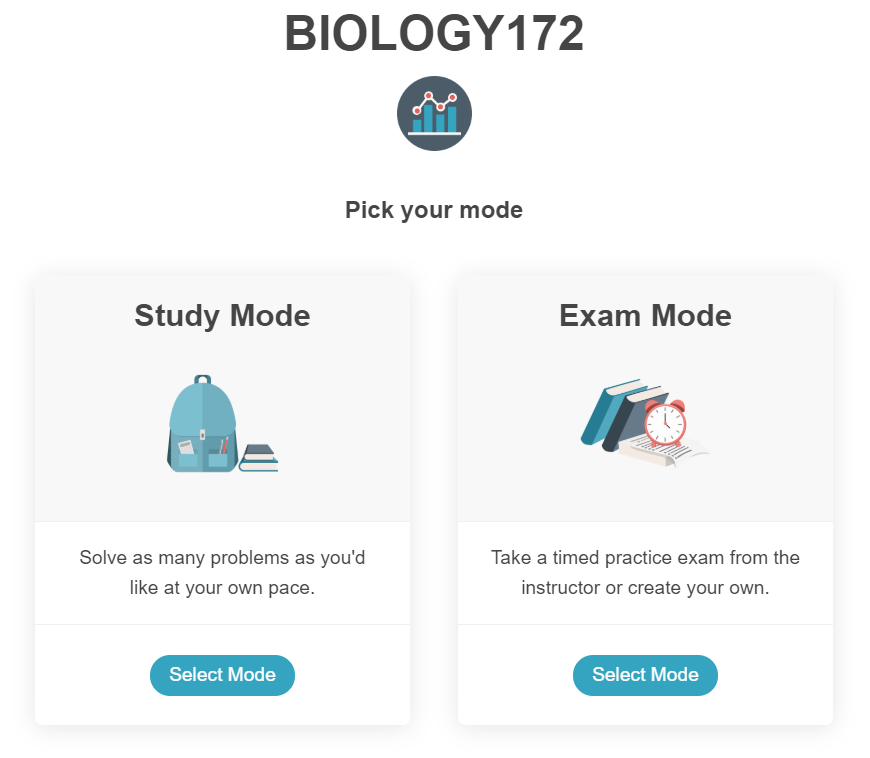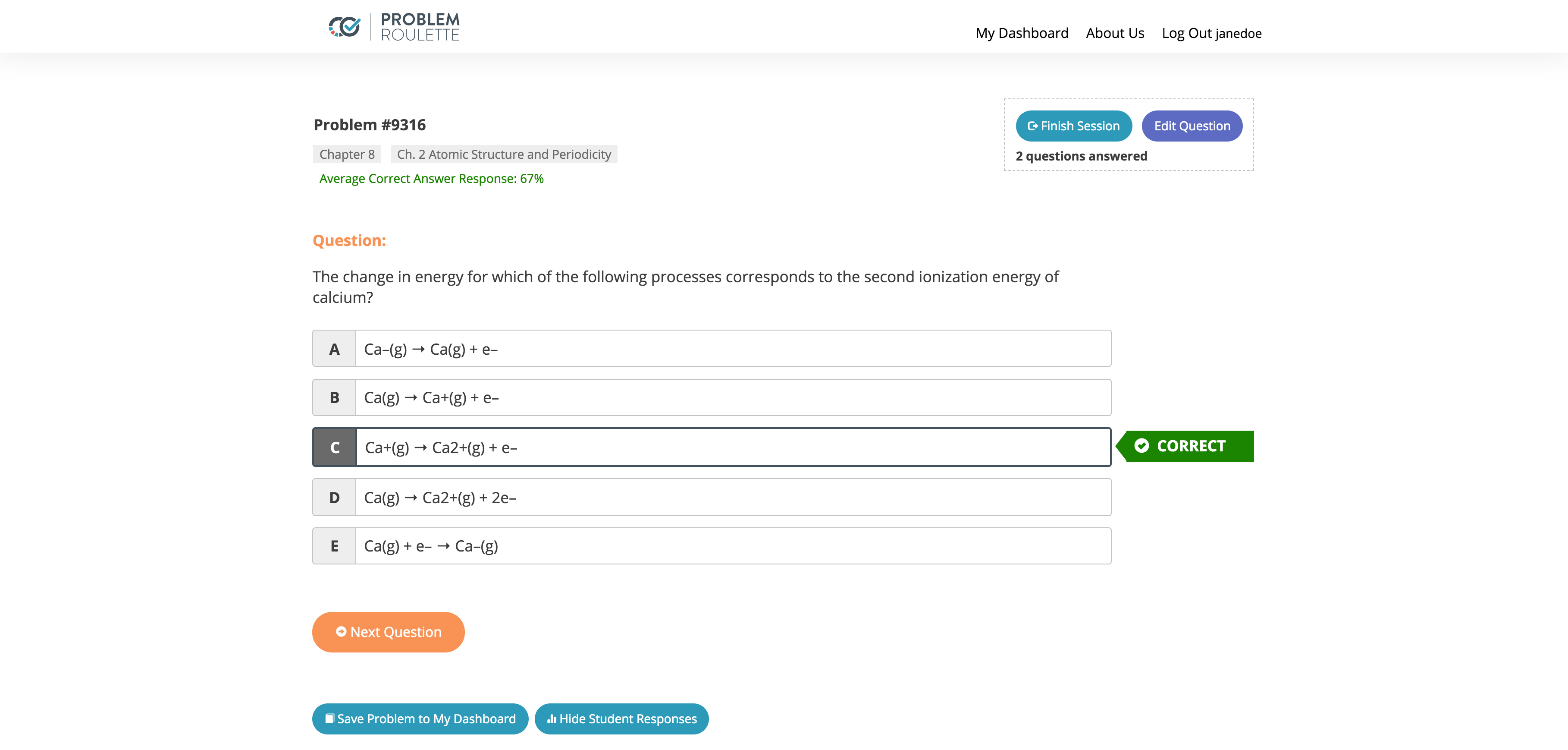Deirdre Lee, Communications Writing Fellow
Studying on your own can be tough — especially when you’re not sure what to expect on your next exam. Even if you know what to expect, finding the necessary study materials can be difficult.
Problem Roulette helps solve this problem by offering students access to a variety of practice study questions from previous exams in a points-free environment. Since launching in eight introductory STEM courses in the College of Literature, Science, and the Arts and the College of Engineering and after joining the Center for Academic Innovation in 2016, more than 11,600 students have completed more than 2 million problem attempts using the digital study tool.
Problem Roulette is now expanding to new courses with recent adoption in the College of Engineering’s “Elementary Programming Concepts” (EECS 183) course as well as LSA’s “Introductory Biology – Molecular, Cellular, and Developmental” (BIO 172) course. In EECS 183, students have the ability to write and edit code as part of their study questions in Problem Roulette, and in BIO 172, 1800+ questions that were originally hosted on Canvas are now available on the platform.

With this expansion, the tool is now available in 12 active courses across seven subject areas at U-M.
August Evrard, PhD, Arthur F. Thurnau Professor of Physics and Astronomy, is the faculty champion and founder for Problem Roulette. He said the tool acts as a lasting archive of information for students, giving them more permanent access to study questions.
“Even if we move away from high-stakes multiple choice tests, there’s always going to be an opportunity to use this content to promote learning,” Evrard said. “This material is used more as a way to develop your understanding of the subject and to self-assess your understanding, because self-assessment, self-awareness, and self-efficacy are all important aspects of knowing.”
In addition to this expansion, he hopes to see Problem Roulette adopted in non-STEM courses.
“Expanding to non-STEM areas would enable us to study the effectiveness of practice testing as a learning tool across multiple disciplines,” Evrard said.
James Alexander, Senior Software Ambassador for Academic Innovation, gathers U-M faculty members and helps prepare them for a positive experience using the tool in their course. He said improving the onboarding experience for faculty is key to expanding Problem Roulette’s reach to more students.
“The platform is a student-focused platform and should serve the students’ needs as they study the material,” Alexander said.

Ollie Saunders, Software Developer at the Center for Academic Innovation, is the technical lead for the tool and has helped guide the direction of Problem Roulette’s growth. He said the tool’s increased adoption and technical expansion involved listening to feedback from students and faculty.
“I think a key part of the success of Problem Roulette is that we’re very open to that kind of feedback, especially compared to commercial quizzing platforms that are profit-driven and don’t cater to the individual needs of students and instructors at U-M,” Saunders said.
Based on feedback from U-M users, several new features have been added to Problem Roulette. For example, Saunders said he worked with the User Experience Design team at Academic Innovation to make the tool mobile-responsive, allowing users to easily use the tool on a phone or tablet. Likewise, a new “Resume Study” feature gives students the ability to seamlessly jump back into a previous study session, even if it was started on a different device.
In addition to student functionality, new instructor features are available as well. A new research framework feature allows instructors to view data about their students’ study habits, so instructors can determine how best to help their students.
Saunders said this recent feature development allowed the Problem Roulette team to improve the experience for both faculty and students — with more to come.
“Some things we’re thinking about developing are richer analytics for students and instructors, more social and gamified features like leaderboards, and having a virtual lobby of active study groups for students to join,” Saunders said.
Listen to the full origin story behind Problem Roulette in this podcast with Professor Evrard and contact us or send an email to [email protected] if you’re interested in adopting Problem Roulette in your course.


